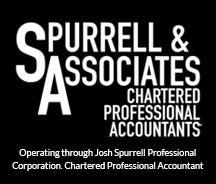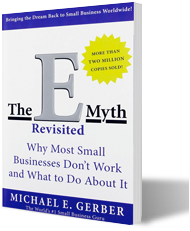Virtual Accountant | How To Avoid A Payroll Audit
Industry Canada has said that half of all Canadian entrepreneurs will end up failing, and virtual accountant says that one of the main reasons why entrepreneurs fail is because they run out of money. When the significant way that entrepreneurs can avoid running out of money, is by ensuring that there filing their taxes properly, and on time so that they do not trigger penalties, late fees, additional interest payments that can end up making an entrepreneur pay more money than they actually need to. One way that entrepreneurs are at risk for having to pay late penalties and additional interest charges is if they do not file their T4 and T5 slips on time, or if they have not submitted the right source deductions to CRA.
If an entrepreneur has either filed their T4 and T5 slips late and if they have not submitted the right to payroll remittances, it could cause Canada revenue agency to issue a payroll audit for that business. The virtual accountant says the best-case scenario would be for CRA to send the entrepreneur a letter demanding payment immediately. However, the worst-case scenario is this late payment or short payment on source deductions will trigger a payroll audit.
If an entrepreneur has to go through a payroll audits, their auditor will ask them for their general ledger and all the bank statements in the previous year. The first thing that an auditor will do is look at the bank statements in order to verify that all of the amounts that went out to individual people were not in fact employees that should have had source deductions removed from their payment and had a T4 issued. If an entrepreneur has paid any business that is unincorporated and shows up as a personal name, all of those transactions are at risk for the Canada revenue agency considering those people to be staff. If CRA does consider those payments to businesses as staff, an entrepreneur will owe source deductions, as well as a late filing penalty, and interest.
The virtual accountant says the second thing that an auditor will do is review all of the money that an entrepreneur has taken out of the business personally, to ensure that they have claimed all that cash on their T4 or it T5 slips. If an entrepreneur has taken additional money out that has not been claimed, it can cause an auditor to take a closer look at all of their shareholder loan amounts, as well as expect an entrepreneur to pay taxes on whatever amount they have not claimed, plus late penalties plus interest.
This could actually equal an entrepreneur owing quite a bit more in taxes as well as late filing penalties and interest charges. Since most entrepreneurs do not have lots of extra money lying around their business, virtual accountant says this is extremely important for entrepreneurs to avoid, so that they can ensure that they keep their business as cash flow positive as possible.
Virtual Accountant | How To Avoid A Payroll Audit
Entrepreneurs should ensure that they are doing whatever they can to avoid a payroll audit Says, virtual accountant. That means, that entrepreneurs need to file their T4 and T5 slips on time, as well as ensure that they are paying all of their source deductions to CRA on time as well. T4 and T5 slips need to be filed by the last day in February, and source deductions are due at CRA by the fifteenth day of the following month that the money was disbursed. If an entrepreneur can do these things, they are likely to avoid a payroll audit.
Since the T4 slip refers to all of the money that has been disbursed from the business as employment income, an entrepreneur who has taken a salary, as well as all of their staff will get a T4 slip. An entrepreneur should ensure that they not only have withheld the correct source deductions from all of the payroll checks but that they have also submitted that money to CRA on time as well. This includes the employer and the employee portion of CPP, EI and income tax. Canada revenue agency will be able to clearly see how much taxes they should have received from the employer by the amount listed on the T4 slip. If an entrepreneur is short, they actually have a grace. Up until January 15 to catch up on anything missed from the entire previous year. If they are still short after this amount of time, CRA may either request that money paid in full immediately or trigger an audit.
An entrepreneur who has underpaid remittances to employees, and the January 15 deadline has passed, there are still some things that they may ask their virtual accountant to do for them. Their accountant may reclassify an entrepreneur’s income as shareholder loans or dividends so that the payroll remittances that they have paid for themselves can be diverted onto their employees’ income. This may be enough for an entrepreneur to avoid being short on their payroll remittances to CRA.
However, if an entrepreneur has already triggered a payroll audit, a virtual accountant says there is several things that they should do before the auditor arrives in order to try to avoid additional penalties. One of the most important things for an entrepreneur to do is review all of their bank statements to ensure that if there is any cash or non-cash benefits that they have taken from their business that is not represented on their T4 and T5 slips, that they attribute it to their shareholder loan. That way, the auditor will see that the entrepreneur is being reasonable, and admitting that they took additional money, but it is now been rectified. This is likely going to allow the auditor to give the entrepreneur the benefit of the doubt on different grey area transactions.
The virtual accountant says it is very important for entrepreneurs to account for all the money that they have taken out of their business properly, but also to avoid a payroll audit in the first place in order to ensure they avoid paying additional amounts of taxes, interest, and penalties.

